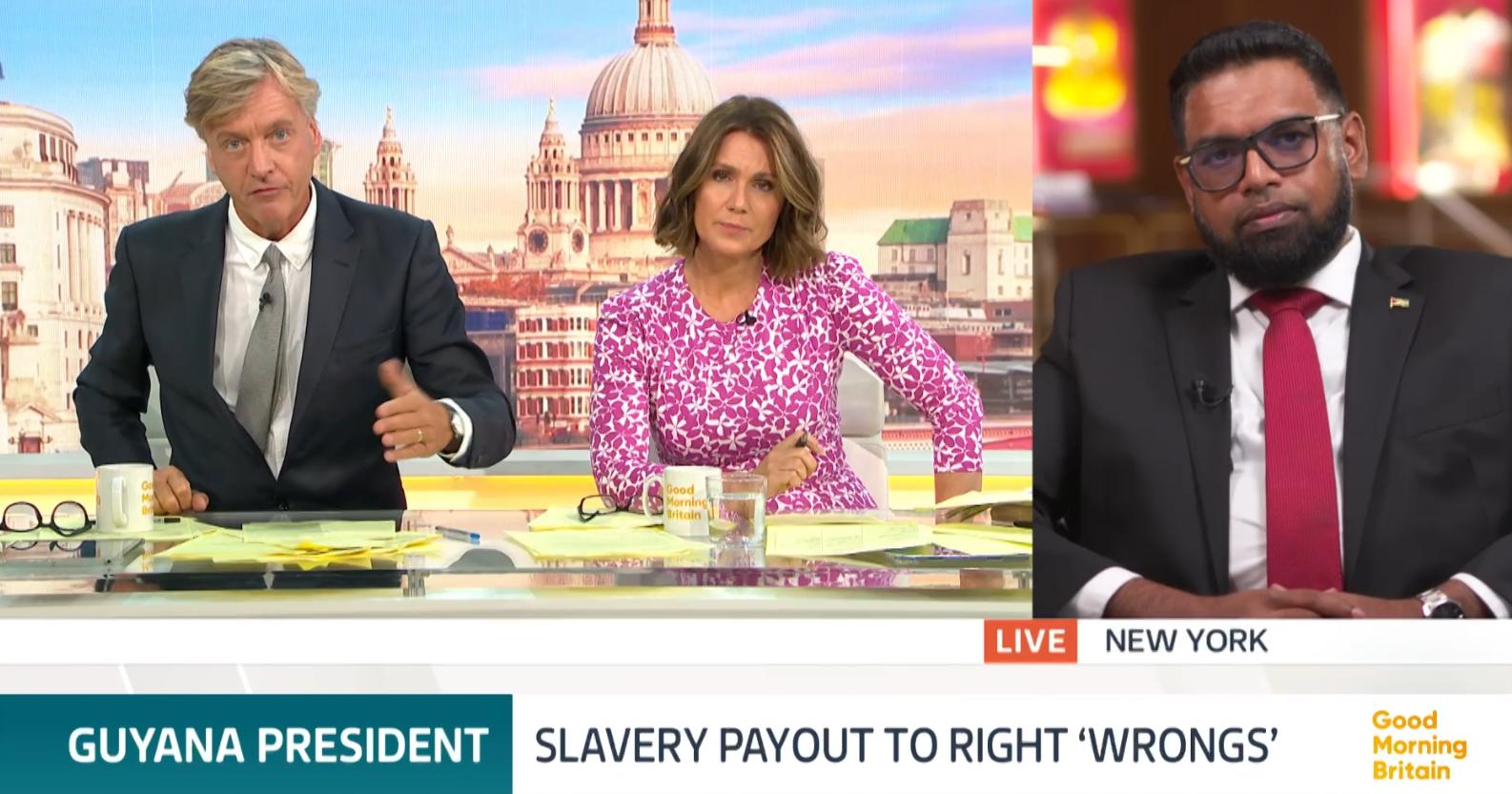‘We don’t want a palace, we’re asking for justice’ – Pres. Ali unrelenting in calls for reparations
The following article is republished and originally appeared in Newsroom Guyana on September 20, 2023.
As Caribbean countries seek justice for slavery and the atrocities meted out to millions of people, Guyana’s President Dr. Irfaan Ali says no palace is being sought from the British who were significant beneficiaries.
Instead, he says adequate reparatory justice is what the people of the region demand and have a right to.
Dr. Irfaan Ali on Wednesday said too that slavery cannot be compared to any other injustice as he joined forces with Caribbean leaders who have become increasingly vocal in their demands for reparations.
“Slavery, we all agree, was the greatest injustice done to human beings… there is no other system that has created greater injustice and indignity than slavery,” Dr. Ali said during a live appearance on the ‘Good Morning Britain’ television show.
The President, who is in New York for the 78th United Nations (UN) General Assembly, is expected to reiterate the Caribbean’s call for reparations during his presentation.
Ahead of his presentation, the Head of State appeared on the show to talk about reparations.
According to him, reparations are needed to help Caribbean countries develop and withstand global crises confronting them now.
“We don’t want the British to hand over a palace that we built.
“If you go into many of the palaces, you will see the lovely greenheart wood from Guyana, you will see the sweat, tears and blood of the slaves exploited and the revenues earned from the exploitation.
“We are asking for justice, and adequate justice,” Dr. Ali said.
Caribbean enslavement lasted for centuries. It involved a system of forcibly bringing enslaved Africans from West Africa to the Caribbean, Guyana included, and forcing them to toil on the plantations. Historical accounts detail that their labour was used to enrich Europeans nations. In Guyana, that meant enriching the British and the Dutch.
But what would reparations look like?
In the Caribbean, calls for reparations became more formalised in 2013 when the Caribbean Reparations Commission (CRC) was established. Renowned academic Sir Hilary Beckles has chaired the Commission, and a ‘Ten Point Plan for Reparatory Justice’ was subsequently launched.
This plan articulates the needs for reparatory justice for people in the Caribbean.
The ten points are: a full and formal apology; repatriation to Africa; the development of cultural institutions; addressing the public health crisis, illiteracy eradication; the Development of an African knowledge programme; psychological rehabilitation; technology transfer and debt cancellation.
Dr. Ali told the British TV hosts that it was only a few weeks ago that the Gladstone family, who were involved in slavery in Guyana, apologised. He said Caribbean countries cannot be expected to wait this long for adequate justice.
“This year in Guyana we commemorate the 200th anniversary for the Demerara Rebellion, it took 200 years to get the apology from the family,” he said.

